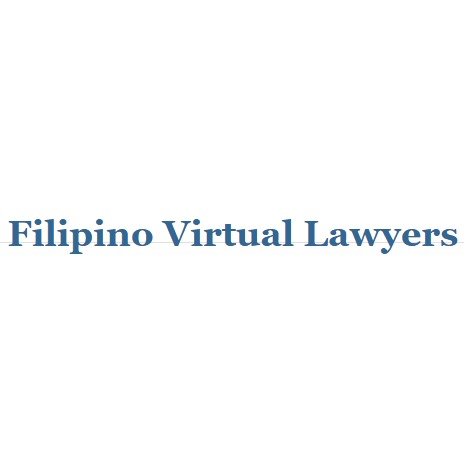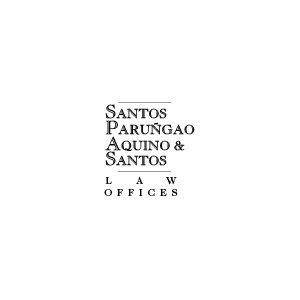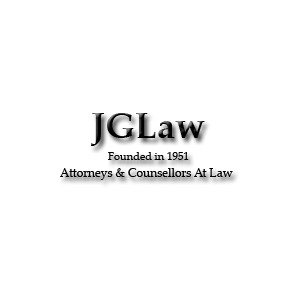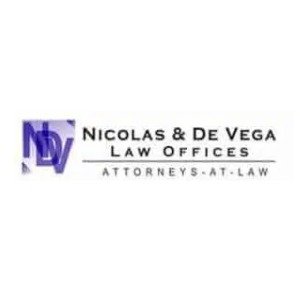Best Government Relations & Lobbying Lawyers in Pasig
Share your needs with us, get contacted by law firms.
Free. Takes 2 min.
List of the best lawyers in Pasig, Philippines
About Government Relations & Lobbying Law in Pasig, Philippines
Government Relations & Lobbying in Pasig, Philippines, involves the practice of influencing policy and decision-making processes within government institutions to benefit specific interests. This field encompasses activities aimed at shaping legislation, regulatory processes, and government decision-making. This practice is vital for many businesses, non-profit organizations, and even individuals who have interests that are affected by government policies and legislation. Although lobbying is a legitimate and regulated activity in the Philippines, it operates under a framework that ensures transparency and accountability.
Why You May Need a Lawyer
There are several situations where individuals or organizations may require legal help in government relations and lobbying. These include:
- Understanding and complying with lobbying laws and ethical standards.
- Drafting and reviewing contracts or agreements related to lobbying efforts.
- Navigating complex legislative processes and government bureaucracies.
- Managing crisis communication and public affairs issues that require negotiation with government bodies.
- Advocating for or against specific regulatory changes or legislation affecting your business or organization.
- Handling disputes or litigation connected to lobbying activities.
Local Laws Overview
In Pasig, as in other parts of the Philippines, several key legal aspects regulate government relations and lobbying:
- Lobbying Regulations: Lobbyists are required to register and disclose their activities and expenditures. Transparency is mandatory to ensure ethical compliance.
- Anti-Corruption Laws: The laws prohibit any form of bribery and corruption in both public and private sectors, which is highly relevant to lobbying activities.
- Freedom of Information Act: This allows access to government records, providing leverage for lobbyists to obtain crucial information needed for advocacy.
- Data Privacy Regulations: Any activity involving personal or sensitive information must comply with data privacy laws to protect individuals' rights.
Frequently Asked Questions
What is the legal definition of a lobbyist in the Philippines?
A lobbyist is any individual who engages in activities aimed at influencing legislation or government decisions, typically as part of their profession, or representing a business or organization.
Do I need to register as a lobbyist?
Yes, registration is required if your activities include attempts to influence government policies, legislation, or regulations as a professional service or on behalf of a client or employer.
What ethical standards must a lobbyist adhere to in Pasig, Philippines?
Lobbyists must adhere to standards of transparency, honesty, integrity, and must avoid any activities that could be perceived as corrupt or unethical, such as offering bribes or participating in conflicts of interest.
How can I ensure compliance with lobbying regulations?
It is advisable to consult with a lawyer who specializes in government relations to ensure all activities comply with legal requirements, including registration and reporting duties.
Can non-Filipino entities engage in lobbying in Pasig?
Yes, non-Filipino entities can engage in lobbying as long as they adhere to the same regulatory framework as local entities, including registration and compliance with anti-corruption laws.
Are there any penalties for unregistered lobbying?
Yes, failure to register lobbying activities can result in fines, penalties, and potential legal action against the individual or organization involved.
What types of information should be included in a lobbying disclosure statement?
Lobbists are required to disclose their client details, topics of lobbying, financial expenditures related to lobbying activities, and any government officials they have engaged with.
How can lobbying efforts impact my business positively?
Effective lobbying can lead to favorable legislative or regulatory outcomes, access to government contracts, and greater alignment of industry standards with business objectives.
What should an organization include in a lobbying strategy?
A comprehensive lobbying strategy should include a clear analysis of objectives, identification of key stakeholders, proposed messaging, and compliance procedures.
Is there a difference between advocacy and lobbying?
Yes. While both aim to influence public policy, advocacy often involves broader public engagement and raising awareness, whereas lobbying typically involves direct interaction with policymakers.
Additional Resources
Here are some resources and organizations that may be helpful for those seeking legal advice in government relations and lobbying:
- Pasig City Government: Provides resources and information about local government regulations and procedures.
- Philippine Registrar of Lobbyists: Offers guidelines and registration details for lobbyists.
- Office of the Ombudsman: Engages in anti-corruption initiatives and handles complaints about government officials.
- Integrated Bar of the Philippines: Can provide referrals for lawyers specializing in government relations and lobbying.
Next Steps
If you need legal assistance in government relations and lobbying, consider taking the following steps:
- Identify Your Needs: Clearly define the scope of your lobbying efforts and what you aim to achieve.
- Consult with a Specialist Lawyer: Work with a lawyer who has experience in government relations and lobbying to guide you through the legal process.
- Prepare Required Documentation: Gather necessary documents, contracts, and any other materials needed for legal compliance and lobbying registration.
- Stay Informed: Keep up to date with changes in local laws and regulations that may impact your activities.
Lawzana helps you find the best lawyers and law firms in Pasig through a curated and pre-screened list of qualified legal professionals. Our platform offers rankings and detailed profiles of attorneys and law firms, allowing you to compare based on practice areas, including Government Relations & Lobbying, experience, and client feedback.
Each profile includes a description of the firm's areas of practice, client reviews, team members and partners, year of establishment, spoken languages, office locations, contact information, social media presence, and any published articles or resources. Most firms on our platform speak English and are experienced in both local and international legal matters.
Get a quote from top-rated law firms in Pasig, Philippines — quickly, securely, and without unnecessary hassle.
Disclaimer:
The information provided on this page is for general informational purposes only and does not constitute legal advice. While we strive to ensure the accuracy and relevance of the content, legal information may change over time, and interpretations of the law can vary. You should always consult with a qualified legal professional for advice specific to your situation.
We disclaim all liability for actions taken or not taken based on the content of this page. If you believe any information is incorrect or outdated, please contact us, and we will review and update it where appropriate.















